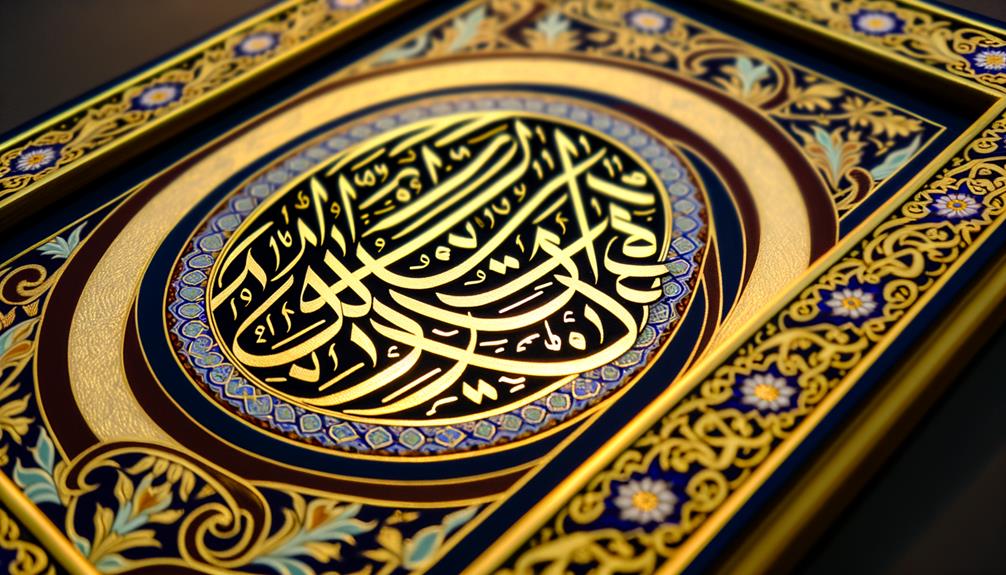Shah Name Meaning in Islam
The name 'Shah' in Islamic tradition signifies leadership, wisdom, and profound moral integrity. Originating from ancient Persia, where it denoted kings and rulers, 'Shah' transcended cultural boundaries to embody high status and respect within Islamic culture.
It symbolizes governance, justice, and noble lineage, reflecting deep spiritual connotations of duty and righteousness. Historically a title for monarchs, it represents an expectation of just and wise leadership rooted in ethical principles.
In contemporary contexts, 'Shah' continues to be a powerful symbol of authority and influence. To understand its rich heritage and modern implications, explore further.

Key Takeaways
- 'Shah' means 'king' and signifies high status and respect in Islamic culture.
- The name 'Shah' symbolizes governance, leadership, and societal hierarchy.
- 'Shah' embodies ideals of honor, responsibility, and noble lineage.
- It holds spiritual significance, representing moral integrity and justice.
- The name 'Shah' is seen as a symbol of wisdom and divine leadership.
Historical Origins
The historical origins of the name 'Shah' can be traced back to ancient Persia, where it was used as a title for kings and rulers. Derived from the Old Persian word 'Kshathra,' meaning 'power' or 'command,' it signified authority and governance.
The title was borne by monarchs of the Achaemenid Empire, including Cyrus the Great and Darius the Great, who expanded Persian influence across vast territories. Over centuries, the term evolved and transcended geographical boundaries, being adopted by various dynasties and cultures.
Its integration into the lexicon of different regions underscores its enduring legacy. Understanding the etymological roots of 'Shah' offers valuable insights into its historical significance and the socio-political structures of ancient civilizations.
Cultural Significance
In Islamic culture, the name 'Shah' carries profound respect and often denotes a person of high status or authority. Historically, the term 'Shah' was used to refer to kings or leaders, a reflection of its Persian roots where it literally means 'king'.
This title is not only a marker of political power but also signifies a deep connection to governance, leadership, and societal hierarchy. The cultural significance of 'Shah' extends beyond mere nomenclature; it encapsulates ideals of honor, responsibility, and noble lineage.
In many Muslim-majority regions, individuals bearing the name 'Shah' are often perceived as embodying qualities of wisdom and leadership, further cementing its place as a revered and influential title within the community.
Spiritual Connotations
Many believe that the name 'Shah' carries profound spiritual significance, symbolizing a divine connection to leadership and moral integrity in Islamic tradition. This name often conveys a sense of responsibility and ethical stewardship, reflecting a higher calling bestowed by Allah.
It is thought to inspire individuals to embody virtues such as justice, wisdom, and compassion—qualities revered in Islamic teachings. The spiritual connotations of 'Shah' extend beyond mere titular honor, invoking a deep sense of duty towards societal and spiritual betterment.
For many, it serves as a constant reminder of the moral obligations and righteous path prescribed by the Quran, thereby enriching the spiritual lives of those who bear this esteemed name.
Symbol of Leadership
Rooted in its profound spiritual significance, the name 'Shah' also serves as a powerful emblem of leadership within Islamic tradition.
Historically, 'Shah' has been a title bestowed upon rulers and monarchs, symbolizing authority, responsibility, and governance. This designation carries with it an expectation of justice, wisdom, and protection of the community, reflecting the principles of leadership outlined in Islamic teachings.
The term encapsulates the ideal that true leadership is a form of service to the people, grounded in moral and ethical duties. In this reverent context, 'Shah' transcends mere nomenclature, becoming a symbol of the values and virtues that a leader should embody, thereby reinforcing its enduring significance in the socio-religious fabric of Islamic culture.
Shah in Modern Context
As the world evolves, the name 'Shah' continues to hold significant cultural and spiritual resonance, adapting its historical connotations of leadership to the contemporary era.
In modern contexts, 'Shah' often symbolizes authority and respect across various domains, from business to academia. This enduring legacy is reflected in the achievements of individuals bearing the name, who frequently rise to positions of influence and leadership.
While the political landscape has shifted, the name retains its association with wisdom, governance, and moral integrity. In addition, in a globalized world, 'Shah' serves as a bridge connecting diverse cultures, embodying a rich heritage that transcends geographical boundaries.
Therefore, the name remains a potent symbol of leadership and respect in today's multicultural society.
Conclusion
The term 'Shah' possesses a profound historical, cultural, and spiritual significance within Islamic tradition. It symbolizes not only leadership and authority but also carries rich connotations of divine guidance and wisdom.
Examining its evolution from ancient Persia to contemporary times reveals a resilient concept deeply embedded in the socio-political and religious fabric. The enduring relevance of 'Shah' underscores its multifaceted role and enduring legacy in shaping Islamic identity and governance.






